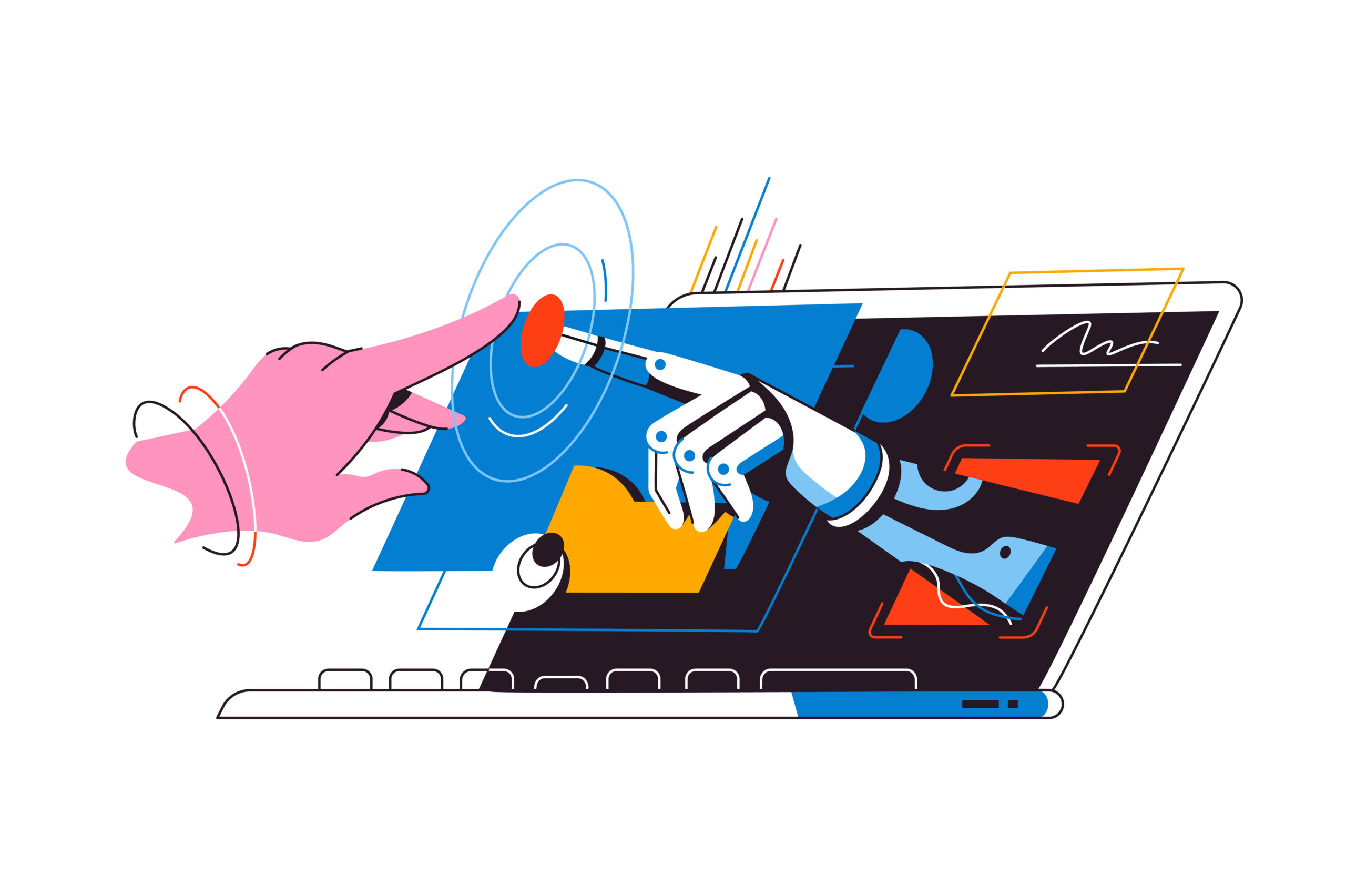As artificial intelligence (AI) becomes more commonplace in businesses across all industries, 76% of B2B marketers are optimistic about AI’s future role in supporting their professional activities — while 83% believe AI won’t replace areas where the human factor is key. As practitioners leverage AI to enhance their existing workflows and augment customer experiences, they must foster a mindset shift across their organization that embraces these new strategies and processes.
In a recent episode of the B2B Marketing Exchange Podcast, Co-Hosts Kelly Lindenau and Klaudia Tirico welcomed Daniel Englebretson — an AI strategist and “Rule of 100” framework — to reveal his practical blueprint for empowering B2B marketing teams in the AI world. While the bulk of Englebretson’s insights reside in the episode itself (accessible on your podcast player of choice), here are the top pieces of advice he shared surrounding the potential of AI to augment human-centric marketing processes.
Kelly Lindenau & Klaudia Tirico: Given the constantly changing B2B landscape, what are some of the most recent trends and strategies you see influencing the industry?
Englebretson: People want authentic experiences when you engage with them, which is a result of economic shifts, the move away from the ‘growth at all costs’ mindset and the advent of AI. Modern buyers want to know you did your homework and have a solution to the problem: People don’t have time to get blasted with irrelevant information. Instead, they crave authentic human-to-human experiences, conversations, connections and relationships, which come to life through different strategies. Whether those strategies are partner-, event- or growth-led, the common thread is people talking to people about real things.

Lindenau & Tirico: There’s almost this ideological battle between AI taking jobs and augmenting them. And while the industry is starting to move away from the ‘takeover’ narrative, there are still concerns about AI’s day-to-day impact. What’s your perspective on how AI will enhance human experiences?
Englebretson: At its core, the human experience comes down to your lived experiences day-to-day: How are you spending your time? What’s frustrating you? What problems do you have? Whether it’s in your personal or professional life, you have problems and you’re looking for solutions. To create a more meaningful human experience for your prospects and customers, you need to articulate how you can help solve their problem faster, more efficiently and in an impactful way — and that’s where AI comes in.
AI brings an unprecedented amount of scale to your ability to sift through information and signals, which will allow you to surface the relevant insights needed to take action or better understand your targets.
Lindenau & Tirico: How can practitioners use AI to empower teams to develop more buyer-centric processes and alleviate the more menial tasks throughout their day?
Englebretson: If you’re a marketer, you’re likely asking yourself, ‘How can I create better campaigns and engage customers more effectively?’ Many professionals would approach this by doing some research, gathering insights and then following a standard outreach process. You can copy and paste those steps with some success, but without AI, you can’t see big results from it. While you could look at five or 10 websites manually, AI would empower you to look at 5,000.
You can’t just duplicate your existing workflows — you have to rethink them based on the level of effort AI provides. It’s not about replacing a human; it’s about creating a fundamentally different tool set that opens a new door.
Lindenau & Tirico: What sort of personalized engagement tactics can AI enable that aren’t currently possible?
Englebretson: The big barrier in personalization is the human capital needed to learn about the specifics of each account or prospect. We all understand the power of 1:1, but it takes too much effort. The barrier to entry has fundamentally changed, and successful strategies have become substantially more possible at a different scale.
For example, I recently worked with a client who needed to target and engage an audience that consisted of businesses that work with the government. This audience had a niche set of requirements around revenue size, contracts and products, and the only way to find that audience was to read up on each account and look for those filters. You couldn’t buy or reliably find that sort of data; you needed to roll your sleeves up and research manually. That was taking even the most capable people up to five minutes to read through each account.
So, we used AI to build an engine that read 4,000 websites overnight to search for specific criteria and surface any relevant findings, as well as grabbed the email addresses from LinkedIn profiles and other on-site information. A human couldn’t have reasonably done that: In theory, yes, someone could sit there and spend five minutes on 4,000 accounts, but that’s cost-prohibitive.
Lindenau & Tirico: Let’s say we live in an ideal world where everyone has the time and bandwidth to dig into AI and utilize it to its full capabilities: What’s the ‘perfect’ role for the technology throughout the buyer’s journey?
Englebretson: When thinking about the ideal role of AI, you need to ask yourself: ‘What am I optimizing for, and what’s the ideal outcome of my efforts?’ Before you fire off whatever tactic you want to try, you need to answer those questions. For example, if you want to optimize processes that reinforce trust, you can deploy AI to analyze data about how customers or prospects are interfacing with your product, solution, company or team. The technology will allow you to move much faster and deeper in your ability to observe and react to things that will either strengthen the relationship or mitigate potential problems.
To learn more about how you can leverage AI to orchestrate more human-centric B2B processes — and unlock a sneak peek into Englebretson’s upcoming session at B2B Marketing Exchange East — tune into the B2B Marketing Exchange Podcast now!




